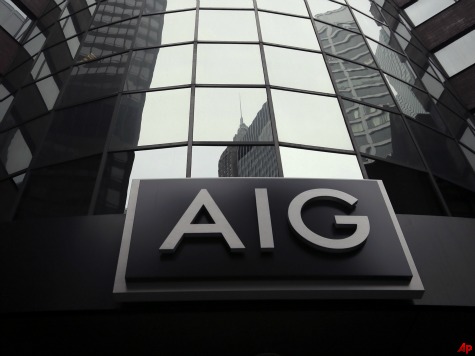
Former American International Group (AIG) chairman and CEO Maurice “Hank” Greenberg told reporters Thursday that he believes his former company could have survived without a taxpayer-subsidized bailout.
“It depends on who’s running the company whether it would survive or not,” Greenberg said at a Thursday National Press Club event when asked if the taxpayer-subsidized bailout of AIG was necessary to the company’s survival. “If they made the right decisions [without a bailout], it could have survived.”
“There were several options,” Greenberg explained.
One of the options was obviously, as they talked about, bankruptcy. I would never have thought about bankruptcy. First of all, we wouldn’t have been in that position had I been at the company. That’s the first thing. That just never would have happened. But, if you’re facing the reality that it did happen when they were there, why would you respond to collateral calls where there was no price discovery and everyone had a different price, so the amount of the collateral you would need to put up depended on the price of the CDO. Second, the quality of the CDO was far from what the quality was alleged to have been. So, why would you respond to that?
Greenberg was the chairman and CEO of AIG and oversaw its rise to prominence over the past several decades. In the early 2000s, then-New York Attorney General Eliot Spitzer targeted AIG and Greenberg, and forced Greenberg out of the leadership of AIG, prematurely, in 2005.
After Greenberg’s resignation, the former CEO maintains, the company followed a path to failure that ended with the taxpayer bailout of 2008. Greenberg blames the intersection of inept management and intrusive government for the massive failures that happened after he left.
“The board really took over AIG,” Greenberg said in response to a Breitbart News question about what happened after he left.
Boards of directors can’t run any company. No global company can be run by a board. Who do you have on the board today? You either have the CEO and the CFO and very few companies have many more on the board than that. I think the pendulum has swung too far in one direction where you don’t have management as involved as they used to be in previous times. The record shows that. There’s nothing new about that. When you look at the record, and when did AIG have the best results, it was when we had a board that was involved. What I mean by that is when we had people from the company on the board, who ran different divisions. They knew what was happening day to day. When you take that asset away, and you give it to outside members, they may mean well. But meaning well, and knowing how to [get] the information you need to make decisions is not the same.
Greenberg noted how his replacement atop AIG, Frank Zarb “brought in Arthur Levitt, who had been the head of the SEC [in the 1990s until 2001], who changed the corporate governance of AIG. A year later, he writes a letter to all the shareholders that says ‘we now have the best corporate governance in the country.'”
“He’s saying that while the company is sinking,” Greenberg continued. “It’s like a captain of a ship telling all the passengers you’re on the safest ship while it’s virtually sunk.
“No one seemed to know what they were doing. The difference between that and what AIG was historically–the people were involved in the company were running the company, not a board of directors, not an outside consultant, none of that.”
The company’s “expense ratio when I left the company was 21 percent,” Greenberg said. “It’s now 33 percent. That’s a difference of $4 billion a year. So when you say, ‘who’s responsible?’ the expense ratio didn’t jump up under my tour.”
Greenberg still was the company’s top shareholder even after he left management, but he did not have executive control. When asked about why he kept his stock in AIG, Greenberg simply responded, “I was stupid.”
“I thought nobody could sink the company,” he said.
Intermingled with inexperienced executives was what Greenberg describes as a government that was responsible as well. “Look, the New York Fed oversaw the banks in the New York City,” he said. “You can’t say that whoever was running the Fed, I think it was Geithner, didn’t know that CitiGroup was doing what it was doing or that the SEC didn’t know that some of the investment banks were leveraging their capital 40 to one. Or that Fannie Mae and Freddie Mac were told, ‘take as much mortgages as you can.’ The government had a role in some of this.”
“Of course there’s the Secretary of the Treasury calling up a public company and saying to the CEO, ‘you’re fired, I’m putting someone else in,'” Greenberg added.

COMMENTS
Please let us know if you're having issues with commenting.